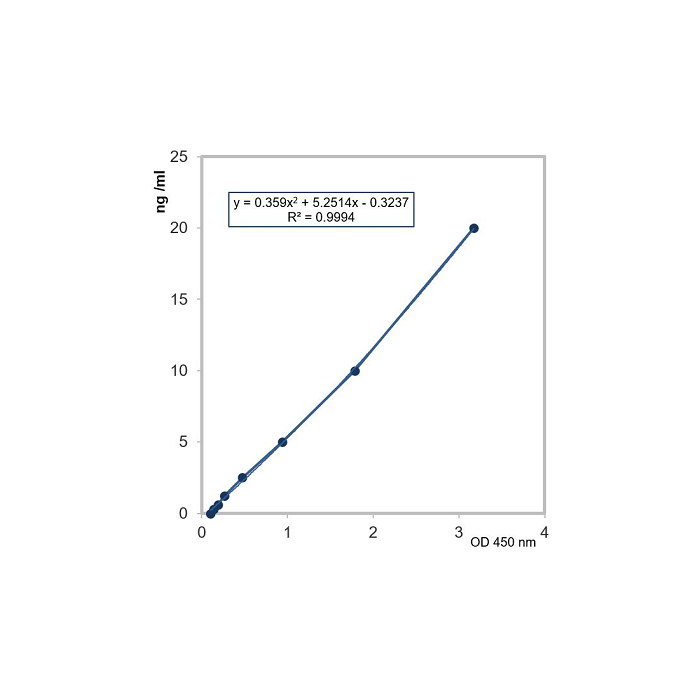Cookie Policy: This site uses cookies to improve your experience. You can find out more about our use of cookies in our Privacy Policy. By continuing to browse this site you agree to our use of cookies.
AdipoGen Life Sciences
Asprosin (human) ELISA Kit

| Product Details | |
|---|---|
| Synonyms | Fibrillin-1 C-terminal Cleavage Product; FBN1 C Terminal Cleavage Product |
| Product Type | Kit |
| Properties | |
| Application Set | Quantitative ELISA |
| Specificity |
Detects human asprosin. |
| Crossreactivity | Human |
| Quantity |
1 x 96 wells |
| Sensitivity | 230pg/ml |
| Range | 0.3125 to 20ng/ml |
| Sample Type |
Cell Culture Supernatant Plasma Serum |
| Assay Type | Sandwich |
| Detection Type | Colorimetric |
| Other Product Data |
UniProt link P35555: Asprosin (human) |
| Accession Number | P35555 |
| Shipping and Handling | |
| Shipping | BLUE ICE |
| Short Term Storage | +4°C |
| Long Term Storage | +4°C |
| Handling Advice |
After standard reconstitution, prepare aliquots and store at -20°C. Avoid freeze/thaw cycles. Plate and reagents should reach room temperature before use. |
| Use/Stability | 12 months after the day of manufacturing. See expiry date on ELISA Kit box. |
| Documents | |
| Manual |
 Download PDF Download PDF |
| MSDS |
 Download PDF Download PDF |
| Product Specification Sheet | |
| Datasheet |
 Download PDF Download PDF |
Asprosin is a new fasting-induced protein hormone that targets the liver to increase plasma glucose levels. Asprosin is the C-terminal cleavage product of the protein Fibrillin-1. Asprosin is secreted from white adipose tissue and increases hepatic glucose production by using cAMP as a second messenger, leading to activation of protein Kinase A. Reduction of asprosin levels protects against metabolic syndrome-associated hyperinsulinism. Asprosin may act as a circulating hunger signal. Indeed, peripherally injected recombinant asprosin can cross the blood-brain barrier and intracerebroventricular (i.c.v.) injection of recombinant asprosin stimulated appetite in wild-type mice, indicating a central mechanism of action. Loss of asprosin in mice and human leads to decreased fat mass and body weight and hypophagia. Mice are also completely protected from the development of diet-induced obesity. Asprosin works by stimulating the orexigenic AgRP+ (Agouti-related neuropeptide) neurons via a cAMP-dependent pathway and by inhibiting the anorexigenic neurons POMC+ (pro-opiomelanocortin) neurons in a GABA-dependent manner. Mutation in asprosin in human leads to the pattern of metabolic dysregulation, including partial lipodystrophy, accompanied by reduced plasma insulin. Due to its key role in food regulation, asprosin function could serve as a potentially unique therapeutic target against obesity, diabetes or metabolic diseases.





